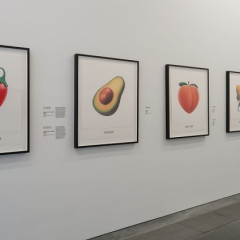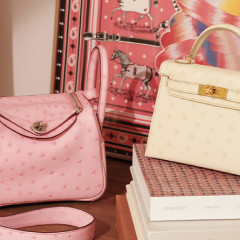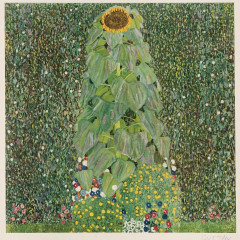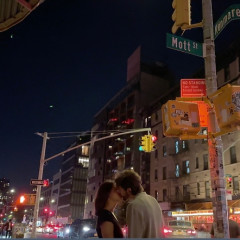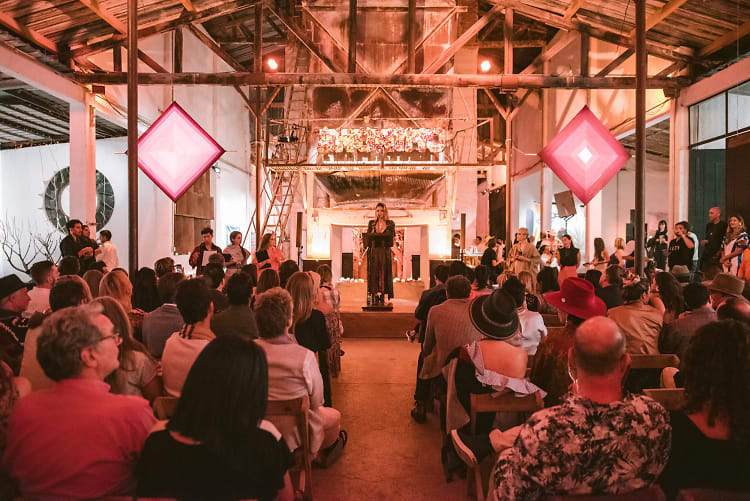
On the first Thursday in March, in the colorful city of Oaxaca, Mexico, two men in knit ponchos began a bidding war over a seven-eyed goat. The enthusiastic auctioneer stood on a platform, beneath rusted beams and a floral sign, holding a literal hammer and encouraging them to go higher. At some point in the night, she slammed down so hard the podium actually cracked. The other chic patrons holding paddles cheered for each piece sold, their cups runneth over with mezcal and energy. Needless to say, this wasn't your typical art auction.
And it certainly wasn't trying to be.
Anónimo, a non-profit contemporary art auction fueled by social responsibility and the desire to democratize the art world, is known for shaking things up, primarily by keeping the names of artists anonymous until their pieces are sold. In an industry where the value of work is often conflated with the reputation of its creator, it's a bold move. But one that's been gaining traction nonetheless.
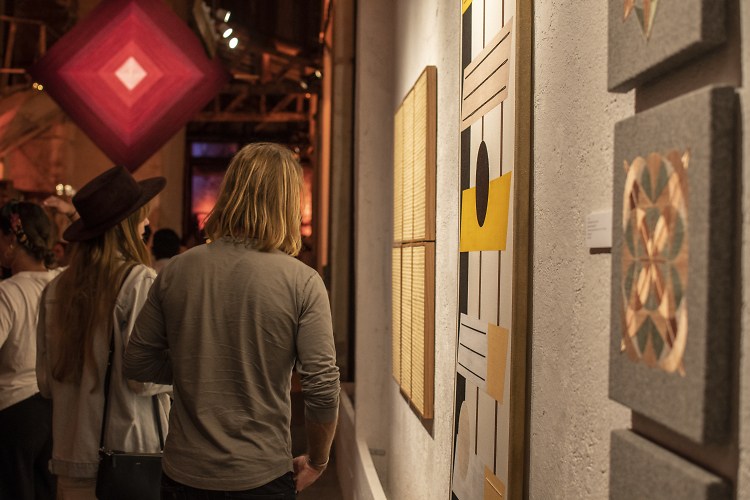
The event in Oaxaca marked Anónimo's sixth iteration, and, even more notably, its first-ever thematic edition: Textile. The aforementioned seven-eyed goat emerged three-dimensionally from a tapestry made of wool fleece and felt. One of the poncho'd bidders was a well-known real estate developer. As for the excited auctioneer? It was none other than the founder and director of Anónimo herself, Alejandra Martínez.
"I just wanted to create a space where the less you know about art, the more real your experience would be," she says of the experiment she began in 2015, in an attempt to welcome a broader circle into the art-buying experience, while also allowing people to connect with a piece in a purer sense. Without the backing of a name, and its perceived value, art at Anónimo stands up on its own.
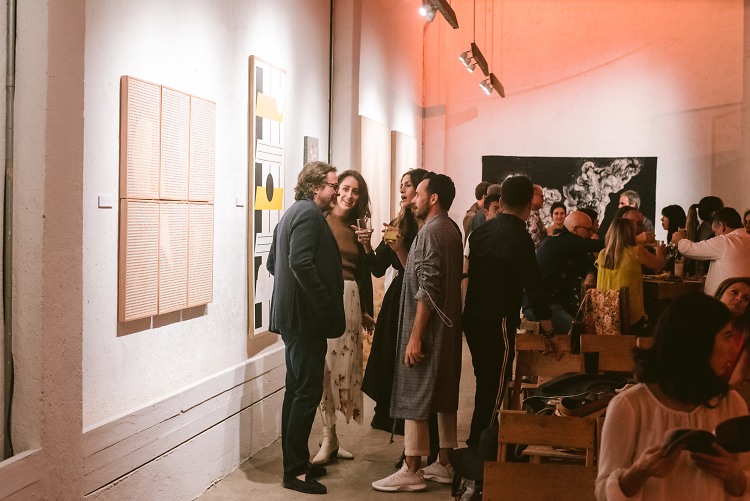
"[Usually] it's the artist, the gallery, the fair - three 'brands' telling you why you should like certain things," Martínez continues. "And we already live in such a brand-saturated world."
Following a successful first edition in Miami, Anónimo was offered high-profile Art Basel spots at venues like The Bass Museum and Faena Forum, as well as an edition at the Museo Tamayo in Mexico City. But when the opportunity to hold an event in Oaxaca arose, it also presented Martínez with a chance to bring her project back to its roots.
"I really was dreaming about taking Anónimo into thematic editions that [would bring] so much more substance and soul into it." In Oaxaca, picking a theme was easy: the local soul is seeped in the Mexican millinery tradition of textile-making. And so the Textile edition was born.
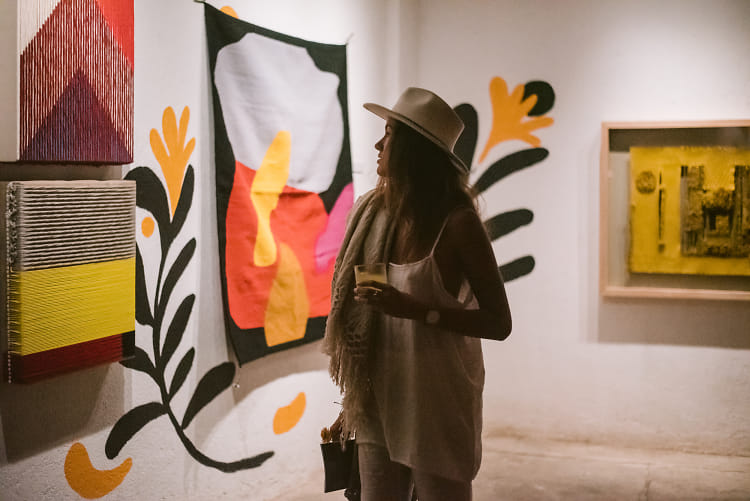
Held in a generations-old former limestone factory turned rustic-industrial events space, La Calera, the auction allowed Martínez and her team to take back the reins, curating and selecting each piece themselves without the pressure of sales expectations from established art world overseers. A partnership with Mezcal Amores, which held its flocked-to annual rave in the agave fields the same weekend, secured a cosmopolitan crowd with both taste and funds; in the end, selling the pieces wouldn't be an issue, especially when one considers the artists who were eventually revealed.
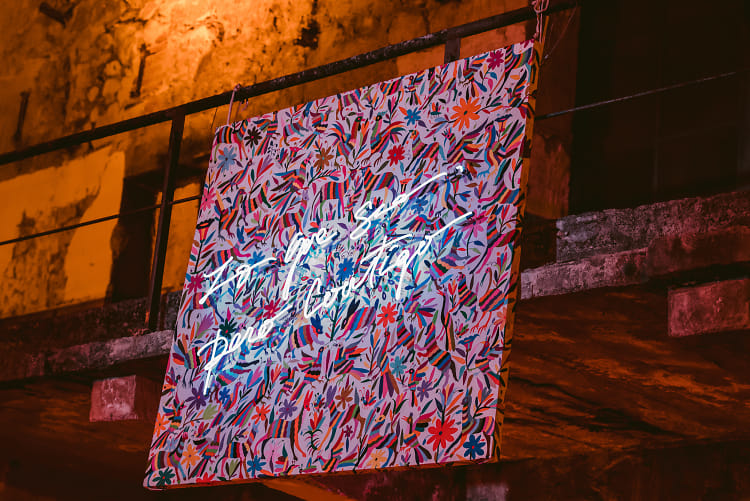
One of the show-stopping works up for grabs was a hand-blown neon light piece backed by Otomi fabric by L.A. art darling Olivia Steele. It towered above the al fresco buffet out back, where guests mingled and local women fried up taquitos. She created it specially for Anónimo, combining her go-to medium (neon) with a textile element. Steele wasn't the only one: "a lot of other artists were... super excited to see what they could do with the medium," says Martínez, although creations by artists who do traditionally work with textile did not disappoint.
And neither did the festivities. The energy, the dancing, the free-flowing Mezcal Amores - this party was a far cry from the snobby cocktail affairs we're used to in the biz. Of course, for Martínez, the departure was purposeful. "Everything is [usually] about being on the list. The whole entire experience of [art parties] is oh, we made the cut. That’s it! It doesn’t progress from that. We’re just there being the selected ones and it’s just so boring," she says. "Nothing flows, everyone leaves after an hour." At this bash, jet-set bohemians let loose alongside locals alongside collectors alongside critics until long after midnight.
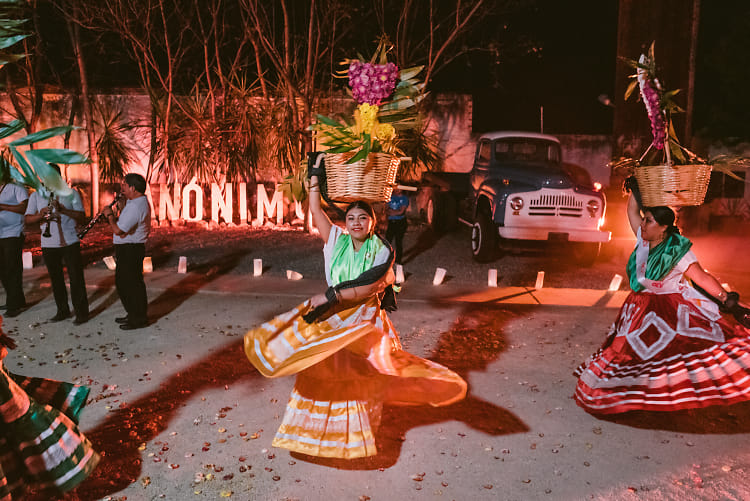
It's that very self-contained buoyancy that keeps Anónimo afloat, at least where Martínez is concerned. Despite an ambitious forecast of editions in Mexico City, New York, Los Angeles, and even Paris, its founder isn't precious about its future.
"[Anónimo will continue as long as] I feel like I want to go to my own events. When that stops, this is ending... I want to keep things exciting for me and my team and if it keeps feeling like the energy is there then we'll keep doing it. And when we feel like it's lost, I'd rather just have it as this beautiful experiment."
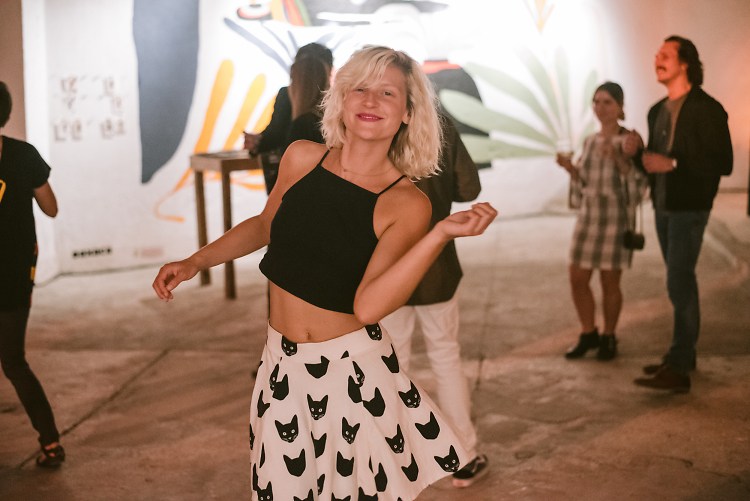
And a beautiful experiment this was, in more ways than one. As a non-profit, Anónimo takes on a new social cause each edition, this time donating to preserve the textile tradition. At the end of the night, a total of 25 pieces were auctioned raising $90,000 to benefit Don Remigio Mestas, a local hero who works with weavers in remote villages to revive lost traditions and preserve those that are at risk of becoming a lost art. If these pieces were any indication, textile-making is certainly not an art we can afford to lose.
[Photos courtesy Anónimo]


.jpg)
.jpg)



.jpg)
.jpg)
.jpg)

